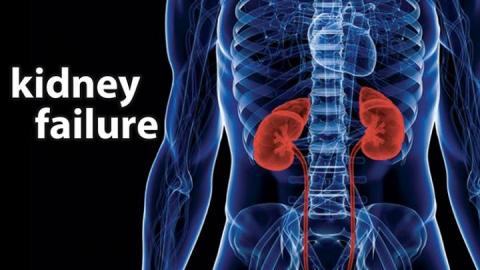
When Joseph ‘Pepe’ Njuguna, 63, of Kasarani, Nairobi developed severe vomiting one fateful evening of December 2015, he did not know that his life would take a turn he had never imagined before. He would first go to a private hospital, given medication in form of injections and let to go home. He would not feel better. The following day he would pick himself up again and go to Kenyatta National Hospital (KNH) doctors plaza where after seeing a specialist and being ordered to do a couple of tests, he would be admitted for the following two months at the hospital having being diagnosed with chronic kidney disease, a condition that results in permanent damage of the functional cells of kidney, nephrons, rendering one to have kidney shutdown.
His journey began five years prior when he would develop occasional pains on his lower back which would later become intense and frequent a year before the diagnosis. He thought the pains were as a result of fatigue due to his work. He works as a tour guide with majority of his clientele being from foreign countries. He had never been really sick except for an appendix operation he underwent in 2004. Due to the back pains he would massage himself which provided some relief but had never considered seeking medical treatment until that fateful evening when he developed fulminant symptoms.
After diagnosis and admission at KNH, he was monitored closely by the doctors and nurses and underwent dialysis three days in a week until his discharge when his condition stabilized. He still sees his specialist once in a while but undergoes dialysis two times a week, Wednesdays and Saturdays. He has gotten used to his new reality except for significant changes that took place in his life after the diagnosis and the new challenges that he has to confront of living with chronic kidney disease.
Suffering kidney disease brought new financial challenges. Undergoing dialysis meant that he had to incur unforeseen costs to cater for the procedures. “I never really understood the KNH’s system for dialysis,” he says. “I used to spend Ksh. 6000 every week since I had to buy the equipment needed and the medication by myself but when I later moved to Nairobi West Hospital everything was provided for as long as I had a valid National Health Insurance Fund (NHIF) account.”
The problem also meant that he could not work as before which led to a fall in his earnings. “My job and earnings went down,” he says. “I cannot spend so much time away from Nairobi as before since I have to have dialysis done every three or four days which means I have to take assignments that are short-lived to allow me to resume my dialysis sessions on time. Otherwise, if I find myself in a situation where I cannot leave work whatsoever, I have to watch my diet and strictly avoid eating red meat and proteins which can worsen the kidney problem during that time.”
Kidney disease affects the eating habits of an individual. “Eating and dieting is a major problem since one has to adjust,” he says. “There are so many good foods that one has to stop such as oranges, mangoes, bananas and sodas. Red meat is also prohibited yet one cannot eat fish and chicken continuously since they taste funny when eaten continuously unlike beef or goat meat which one can eat on subsequent meals. Potatoes have to be cooked in a special way to rid excess potassium.”
Health wise he still suffers from bouts of dizziness and occasional loss of balance especially when walking which he has never understood the specific cause despite his blood tests being fairly normal. “The doctor told me that those episodes would persist. The dizziness is usually worse soon after dialysis sessions,” he says.
His social life changed since he is, “no longer interested in meeting his friends as before” for reasons he cannot understand. “When I am not working, I prefer to spend time in my house. I cannot enjoy an alcoholic drink or smoke cigarettes.” Although he had stopped smoking the very day he started vomiting. He also had to hire a house girl to assist in housework especially cooking since he cannot cook by himself as he may collapse while cooking.”
Nowadays he has really improved. “Previously I never used to pass urine at all, but now I can,” he says. His only hope for a complete resolution of the problem lies in kidney transplant. “The doctor advised me that the only way out of dialysis is to have a kidney transplant done,” he says. “But the main challenge is that the procedure is done in India at a cost of Ksh. 5 million, an amount I cannot afford. The government promised that it would build a hospital for kidney transplant which can really help in mitigating the situation.” Nevertheless he is grateful that dialysis services have become more available in hospitals across the country making it easier for thousands of citizens who have to undergo the procedure. He is also grateful that NHIF has allowed him to access the services which would otherwise incur him Ksh. 18,000 per week if he were to pay by cash.
He continues to be hopeful of the future as he has to take care of two of his six children. The first four are old, independent and married having gotten them in his first marriage. The last two children gotten with his divorced second wife are still too young to be left alone since the older one just joined high school this year and he has to provide school fees and upkeep. He advises people to go for frequent medical check-ups to ensure that health problems are picked up early and never to ignore any symptoms without seeking professional advice.